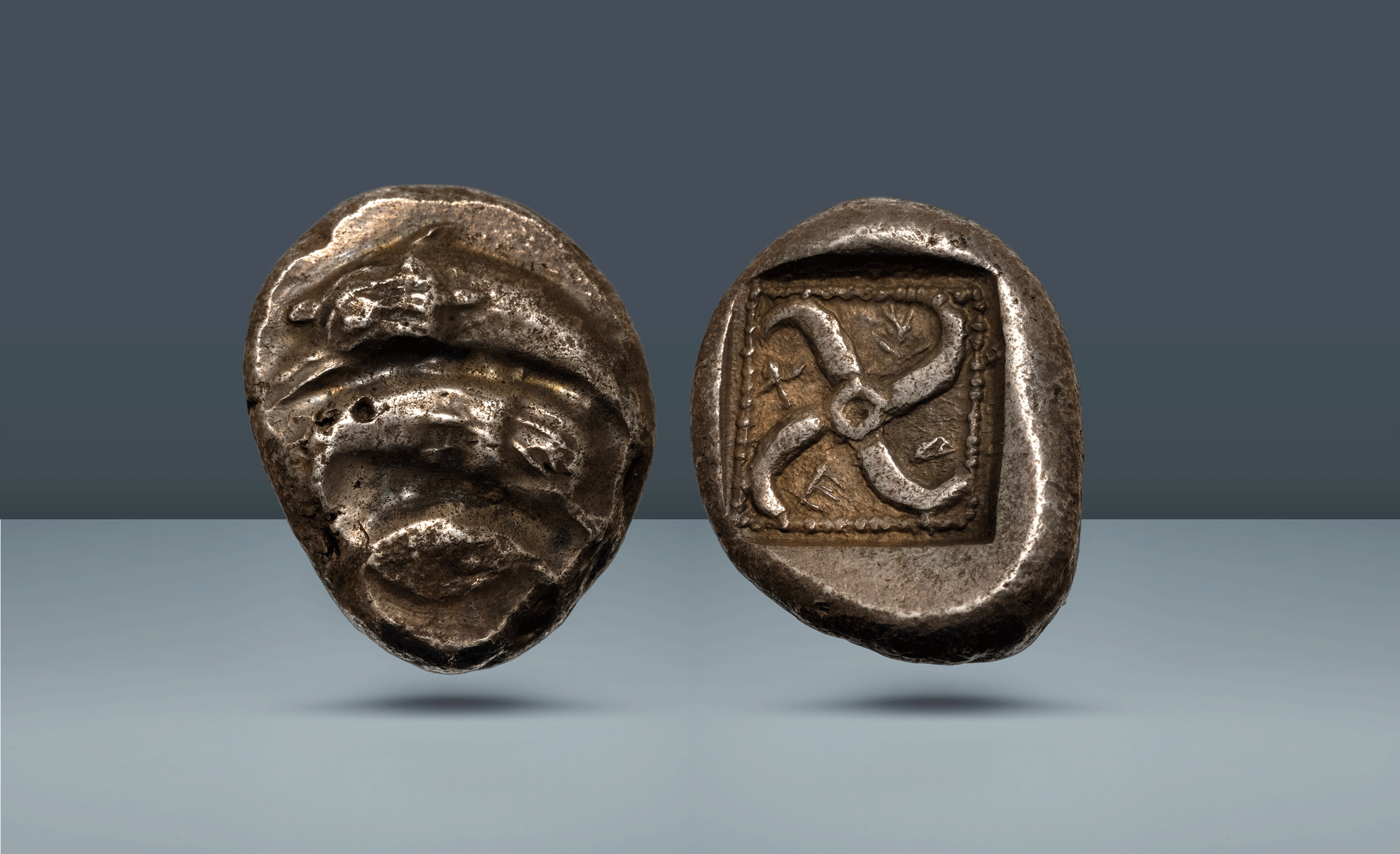Dynasts of Lycia, Lycia. Thibānuwa, c. 480 - 460 BC Aperlei, Apollonia or Phellos. c. 460 BC
Dynasts of Lycia, Lycia. Thibānuwa, c. 480 - 460 BC Aperlei, Apollonia or Phellos. c. 460 BC
AR Stater, 9.72g (21mm, 3h).
Two dolphins leaping in opposite directions (top l., bottom r.), both above eye / triskeles in beaded border, all within incuse square
Pedigree: Ex. Auktion Giessener Münzhandlung 84, 13 October 1997, lot 5352
References: Müseler III, 43 (this example); Müseler in Gephyra 25 (2023), 9.4.2. SNG Von Aulock 4107
Grade: Irregular shaped flan. Minor marks and some roughness, otherwise toned VF+
gk1882
Scroll down for more information about this coin.
Recently, a number of coins attributed to the Lycian Dynast Thibãnuwã have come to market giving numismatists a clearer picture of local power distributions in Western Anatolia in the 5th century BC. In a recently published 2023 paper by Wilhelm Müseler, deduced based off of new coin finds that over his rule, Thibãnuwã’s locus of political power actually shifted a few miles westward away from Aperlai and towards Phellos. This particular coin is potentially an example of this shift, as it was most likely struck at Aperlai. This can be ascertained due to the usage of the tetraskeles instead of the triskeles, a switch that first happened at this mint and was only later adopted at the Phellos facility. In fact, this symbol had such success that later rulers such as Sppñtaza and Teththiweibi continued to use the tetraskeles as their “emblem / clan-symbol” for years to come.

